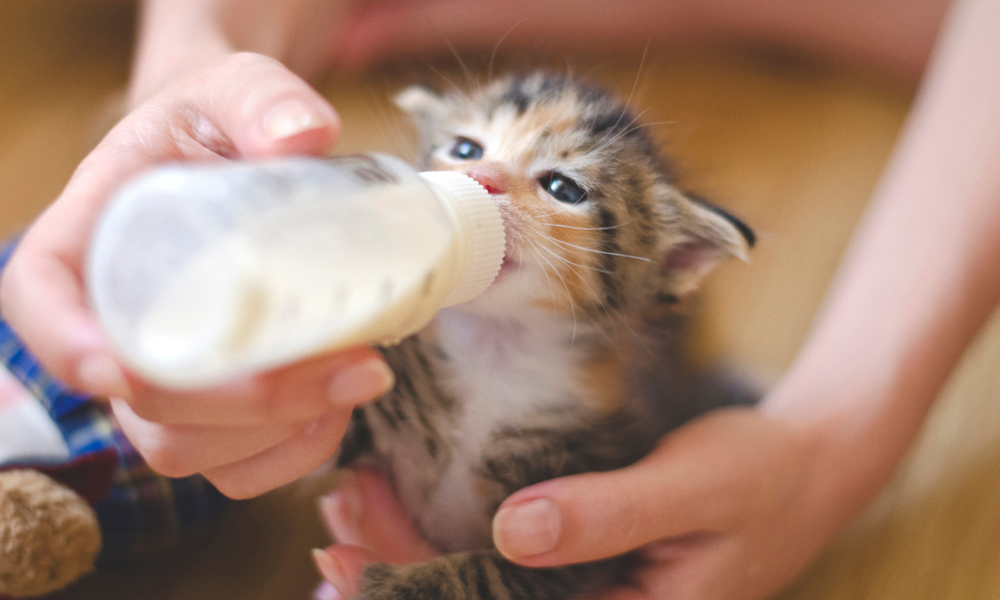So you love cats and want to help them find loving homes. Have you ever thought of cat fostering? As the name suggests, it means being a cat’s “for now” family, so the animal rescue organization has time to find the feline’s forever home.
Let’s take a look at what cat fostering is all about.
Why do shelters foster cats?
Pet fostering is often regarded as something in the dog realm. Many people are surprised to learn that fostering can also apply to cats. Here are some of the top reasons fosters are needed.
Some animal rescues have either small facilities that quickly reach capacity or no facilities for housing animals. Instead, they rely on their fleet of volunteer fosters to open up their homes to house a cat or two until they can be placed.
Other organizations set up a fostering program so they can free up space at overcrowded shelter facilities, allowing them to take in even more cats.
Cats with special medical needs, such as recent surgery, are often foster candidates, because a quiet home is less stressful for the cat and allows them to recuperate.
Finally, there’s kitten care, which is a specialty area. When a nest of newborn kittens is discovered and brought in, animal groups often don’t have the time and staff to provide the round-the-clock care kittens need to thrive. Bottle feeding kittens is rewarding, and the kittens are undeniably cute. But keep in mind that it’s exhausting, demanding work.
What are the benefits of fostering cats?
When you look at some of the statistics around homeless cats, it’s clear that cat overpopulation is a tremendous problem.
The U.S. is home to 30 million to 40 million feral cats, which produce 80 percent of the kittens, according to the Humane Society. Some of these are lost and abandoned pets; living outside shortens their lives. There’s a shortage of space and shelter to handle them all. Shelters take in some 3.2 million homeless cats a year, says the ASPCA. Of these, 860,000 are euthanized, while only 90,000 are returned to their owners.
On top of that, there’s the heartbreaking reality that some people see cat lives as disposable and easily replaced. (Just ask someone who works in animal welfare, and they’ll tell you tragic tales of abandonment.)
However, by choosing to become a volunteer cat foster parent, you can save lives.
- Fostering cats is one way you can create the change you want to see, one cat at a time. By fostering, you live by the things you value in this world — and others will see it in action. If you wish people would put more stock into cat lives, being part of the solution can inspire others to think differently.
- A cat that stays in a home environment gets real-life socialization and affection so they can develop positive relationships with humans as well as other animals living at the house.
- Compared to a shelter, a home that provides space and stimulation cats need is more conducive to letting cats be cats. It allows their natural personalities to come out, so the animal organization can match them with the perfect family.
- Unlike most sources of “free” cats, a reputable rescue and shelter uses certain best practices before they re-home a cat. That means cats get spayed or neutered, vaccinated, possibly microchipped, and have been examined by a veterinarian before they’re placed in a permanent home.
Fostering is a way to support animal rescue in its mission to connect happy, healthy cats with loving families.
Homes with animals are eligible
Already have pets, particularly a cat? That shouldn’t be a barrier to taking in a foster cat, especially if you have ample space to house them in separate areas of the house, if you needed to. In fact when your foster first arrives, you’ll want to do just that, so both can acclimate to “the other cat.” While this blog is about cats that aren’t getting along, it contains plenty of useful tips will give you everything you need to introduce new cats in a way that lets them do so on their terms, their timelines.
What to expect when fostering cats
Fostering cats is both a time and emotional commitment. Here are just a few things to know before you accept your first cat.
The animal rescue organization should have your back
Before you take in the cat (or kittens), make sure you understand what the organization can and can’t do to support you:
- Who should you contact if the cat needs medical attention?
- How are vet visits handled and paid for?
- Is support provided around training or behavior issues?
- Who can you call after hours and weekends?
- Which supplies will they provide?
If you are financially able, you can certainly cover some of the expenses yourself, which would be considered a donation to the nonprofit. Either way, just make sure you’re both on the same page.
It’s a time investment
Even if you’re not taking kitten duty with its round-the-clock feedings, foster cats do need time and attention from you. Some have medical issues, which means you’ll be observing them and giving them their medicine, while also taking trips to the veterinarian. Even if you have a healthy, self-sufficient cat in your house, she’ll still require attention, stimulation and enrichment. Consider what your schedule allows for daily bonding and play sessions when making your decision. If there are behavioral issues, do you have time and patience to work with the cat?
Sometimes, stuff gets broken
As with any pet, it’s best to go in knowing there’s always a possibility the cat can leave a mark on your house. She may decide to hone her claws on your newly upholstered couch. She may knock over your favorite vase while getting into a tight space on a high perch. She may end up “going” outside her litter box. Before the first kitty arrives, do a little cat proofing and be prepared for messes. If you’re new to cats, or it’s been awhile since you lived with one, check out our guide to getting your house ready for your cat.
Sometimes, it’s sad
Hopefully, the vast majority of your fosters will bring happy vibes, leaving behind nothing but sunny memories. But not all foster tales end happily. Serious illnesses and behavioral issues can turn into heartbreaking situations. Not to mention, saying goodbye to a foster is never easy. When it happens, make sure you have your support network lined up. Someone at the organization may be willing to let you debrief and decompress.
Fostering cats can be empowering because you’re doing something to create better outcomes for homeless cats. For anyone who loves spending time with cats and getting to know the personalities that make each one unique, cat fostering can also bring joy to your life. Get in touch with your local shelter, and they’ll help you get started.
At NutriSource, we want to see every cat and dog find their way to their forever homes. Which is why we’re so committed to supporting shelters across the country. Learn more about how we live by our values of community and family.


